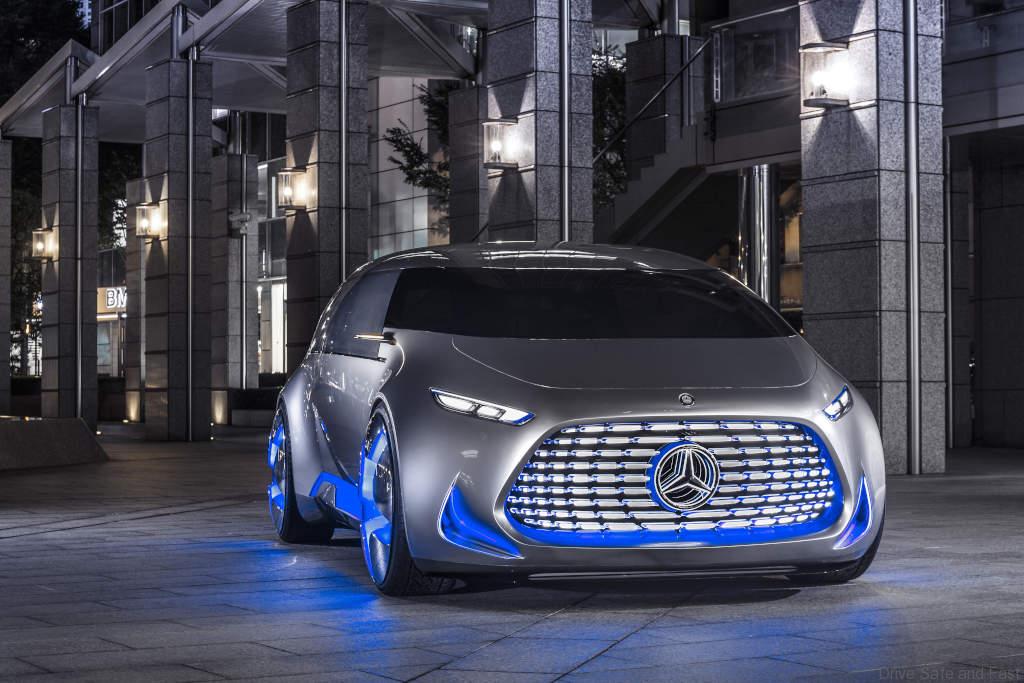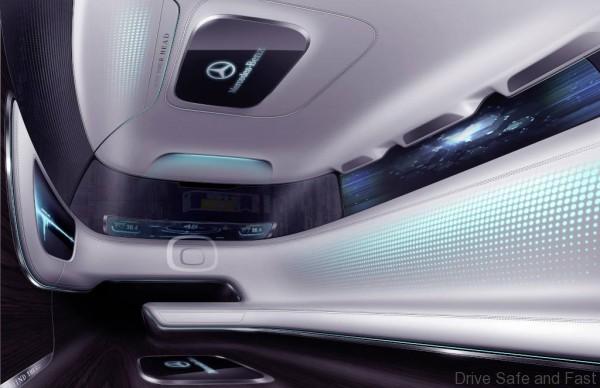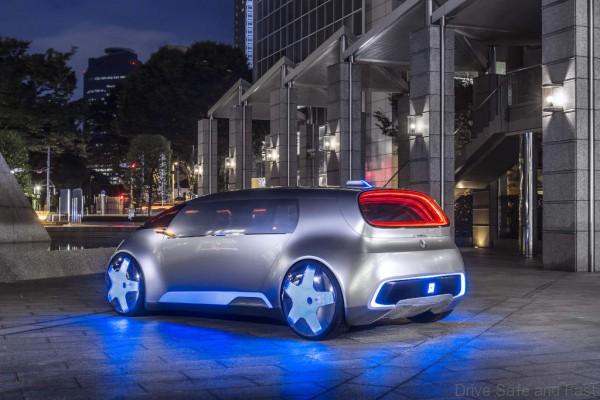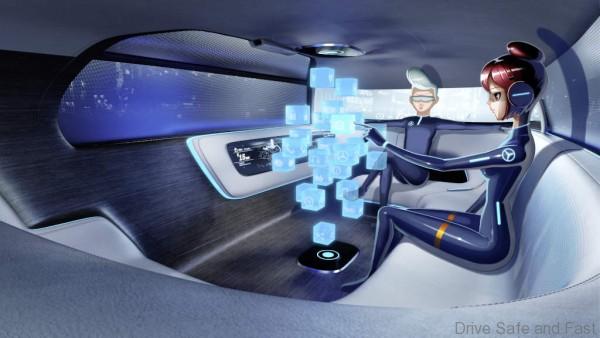Japan’s capital city Tokyo represents home to some nine million people, in an area that is just 622 square kilometres in size – smaller than Paris but with more than four times as many people. This megacity represents a fascinating combination of tradition and contemporary high tech and is constantly defining new trends – making it the ideal location for the premiere of the Mercedes-Benz Vision Tokyo. It will be on display to an international audience for the first time at the Tokyo Motor Show. Hot on the heels of the F 015 Luxury in Motion autonomously driving luxury saloon comes the Vision Tokyo, with which Mercedes-Benz aims to show how the car of the future can be turned into a hip living space – a chill-out zone in the midst of megacity traffic mayhem.
Instead of a conventional windscreen, the Vision Tokyo features a continuous stretch of glass panelling – similar to the glazed cockpit of a powerboat. As was the case with the AMG Vision Gran Turismo, the front headlamps are set well to either side and at an angle. The area across the front of the vehicle can be used to display a series of different lighting functions. If music is playing inside the vehicle the display will, for example, visualise a sound pattern, rather like a sound analyser. The rear window is set into a surrounding ring of red LED cubes, which gives it visual depth. Once again, the LED field can be put to good use – as an indicator display or as part of the analyser function.
The bodyshell of the Vision Tokyo has been designed to allow the crash-protected integration of a fuel cell-powered electric drive system. This is based on the trailblazing F-CELL PLUG-IN HYBRID of the F 015 Luxury in Motion and combines the on-board generation of electricity with a particularly powerful and compact high-voltage battery that can be charged contactlessly via induction. The use of pressure tanks made from CFRP is envisaged for the storage of hydrogen in the concept car. The electric hybrid system has a total range of 980 kilometres, of which some 190 kilometres are courtesy of battery-powered driving and around 790 kilometres on the electricity produced in the fuel cell.
The Vision Tokyo is a homage to the urban Generation Z, the cohort of people born since 1995 who have grown up with the new media. The role of the vehicle has changed for this global generation: it is no longer simply a means of getting around, but a digital, automobile companion. The Vision Tokyo takes things another step further: innovative algorithms allow it to evolve constantly; Deep Machine Learning and an intelligent Predictive Engine mean that, with each journey, it becomes more and more familiar with its occupants, their likes and preferences. All of which makes the Vision Tokyo the perfect partner for Generation Z.






